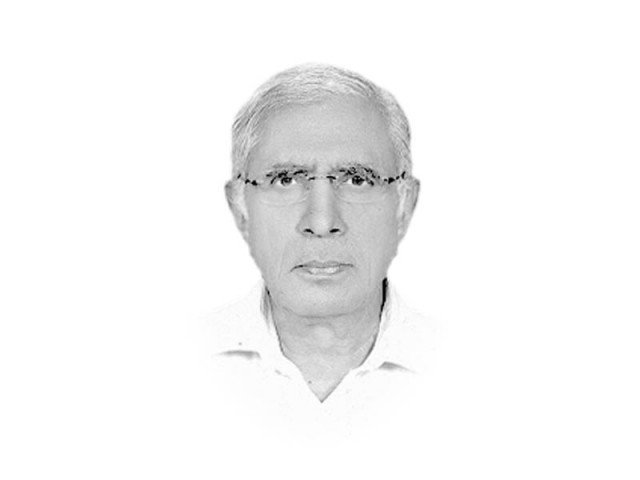Summing up the summit
The decision to order the DGMOs to come up with a plan to keep the LoC cool did not need a summit.

The writer is Executive Editor of The Express Tribune
However, if one went by the turn of phrases used in the public pronouncements emanating from Washington on the proposed Nawaz-Manmohan meeting in New York, it appears as if it was actually the US, which had wanted the two to meet on the sidelines of the UN General Assembly session for the specific purpose of getting Pakistan and India to agree to cooperate in helping Afghanistan achieve peace and stability, following the 2014 drawdown of foreign troops. It was perhaps, with this objective in mind that two days before the Nawaz-Manmohan meeting, US Secretary of State John Kerry met Prime Minister Nawaz Sharif. The official press release after the meeting said: “The two discussed matters of mutual interest including regional stability and the situation in Afghanistan.” And true enough, even Manmohan Singh after meeting US President Barack Obama had indicated as much when he told the world media that he and the US president discussed the situation in the region, including Afghanistan and Pakistan and “I explained to President Obama the difficulties that we face given the fact that the epicentre of terror still remains focused in Pakistan”. Finally, the forthcoming trilateral meeting between Obama, Singh and Hamid Karzai also signals the elevation of India to some kind of a lead role in the Afghan endgame, in the regional context.
That the two prime ministers were less focused on resolving bilateral issues and had seemed more inclined to go through the motions of appearing to be doing so becomes obvious if the speeches of the two at the UN General Assembly are read minus the verbiage. Nawaz reiterated Pakistan’s stated position on Kashmir and the need to resolve the conflict by revisiting the relevant UN resolutions but in the same breath, expressed his wish to repair Indo-Pakistan relations on the basis of the Lahore Declaration, which does not mention the UN resolutions. Manmohan Singh, on his part, claimed Kashmir to be an integral part of India but at the same time, expressed his resolve to resolve all pending issues with Pakistan, including Kashmir, through negotiations. The fact that there was no joint press conference by the two leaders after the talks or a joint press note on the decisions taken but separate media briefings by the officials of the two countries further strengthens the assumption that bilateral issues were not the main topics of discussion between the two countries at the New York summit. The decision to order the DGMOs to come up with a plan to keep the LoC cool did not need a summit. And India’s demand that the perpetrators of the Mumbai carnage be brought to book and Pakistan’s allegation of Indian involvement in Balochistan have been on the table for the last many years. Their reiteration did not need such a high level meeting.
But to be fair to the two prime ministers, it was not their fault that they failed to make any significant progress on bilateral issues. One was an incoming prime minister and the other was an outgoing one. Nawaz was in the saddle only for a little over 100 days when he met his Indian counterpart and Manmohan would be in the saddle for perhaps, no more than a little over 200 days. Being the third time prime minister, Nawaz knows what actually ails Indo-Pakistan relations but as of now, he is still in the early stages of trying to disengage Pakistan’s India policy from its age-old exclusively security related anchor to a more broad-based one, with economy and trade predominantly influencing the relationship. Perhaps, by next May, when the Indian elections will be over and a new government has been formed in New Delhi, Nawaz may be in a position to talk to the Indian leadership in an atmosphere free of past shadows.
Published in The Express Tribune, October 2nd, 2013.
Like Opinion & Editorial on Facebook, follow @ETOpEd on Twitter to receive all updates on all our daily pieces.















COMMENTS
Comments are moderated and generally will be posted if they are on-topic and not abusive.
For more information, please see our Comments FAQ